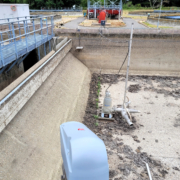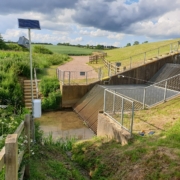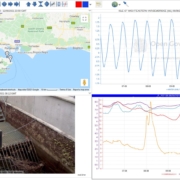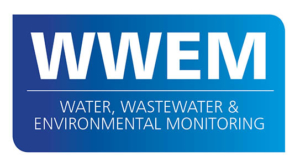Growing demand for storm overflow cameras
Water and sewerage companies are installing Meteor MRC remote cameras at an increasing number of wastewater discharge and storm overflow locations; primarily to check the veracity of event duration monitors (EDMs), but also to avoid unnecessary site visits, save costs, lower the carbon footprint of operations, and help identify the sources of pollution.
The UK government has instructed all water and sewerage companies (WaSCs) operating in England, to install monitors on every storm overflow by the end of 2023. These EDMs must provide information on the frequency and duration of storm overflow spills.
The Environment Agency’s EDM data for 2022 (1) showed that the ten WaSCs in England have 14,580 storm overflows, and that 91% of these were fitted with EDMs. On average, each overflow spilled 23 times for an average of 5.8 hours. “However, it is common knowledge that EDM’s can occasionally falsely indicate that a spill has taken place,” explains Matt Dibbs, MD at Meteor Communications. “EDM’s generally employ water level sensors that are either sited within the water or above it, and technically are capable of taking accurate measurements. The problem in the field, however, is that these measurements can be hampered by a wide variety of factors including blockages, overgrown vegetation, cobwebs and insects.
“Where frequent spills are being reported, or when a WaSC suspects that an EDM is reporting falsely, a site visit may be required, so we are experiencing a heavy demand for rugged, low-cost cameras that are able to deliver reliable high-quality images of discharges to verify the EDM data without, necessarily, having to make a site visit.”
Meteor’s MRC cameras have been designed to operate unattended in remote locations where normal power and communications may not be available. The MRC cameras require just a small battery and a solar panel for year-round operation, and there are currently around 2,500 MRC cameras in use around the UK.
Matt says: “One of the most popular features of the MRC cameras for discharge points, is the facility to attach a robust, reliable water level sensor so that the cameras can be automatically prompted to collect images when water levels rise.
“With the benefit of MRC remote cameras, WaSCs have ‘eyes in the field’ to improve the reliability of EDM data and avoid the over-reporting of spills, whilst reducing the number of site visits – saving time, and lowering both costs and carbon footprint.”
ENDS Words: 398
Reference:
- Environment Agency EDM data 2022 – https://www.gov.uk/government/news/environment-agency-publishes-event-duration-monitoring-data-for-2022








